At the Root of the Evil: the director Walter Stokman on the Kyiv Files and Freedom at Stake
At the Root of the Evil: the director Walter Stokman on the Kyiv Files and Freedom at Stake
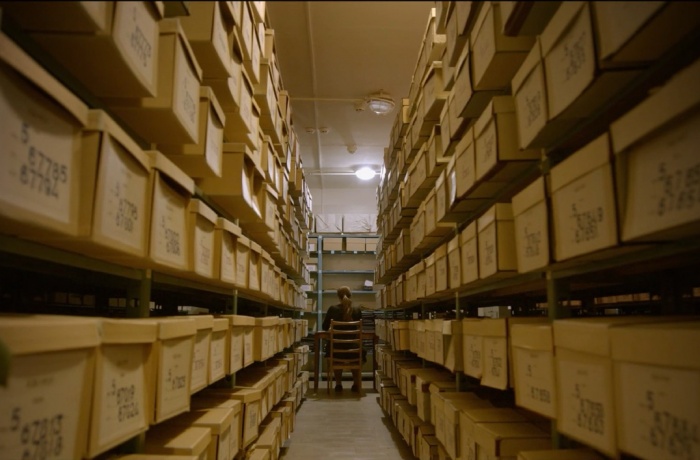
This year, as part of the 21st Travelling Docudays UA program, viewers from all over Ukraine will be able to watch the film The Kyiv Files. In the film, the silent archival files of the KGB, which until recently were still classified, are given a voice and begin to sound through the living testimonies of people who lived through the era of Soviet control. Sometimes comedy, sometimes disturbing sadness – in the end, all the elements of the story add up to an eerie picture of the Ukrainian past of the Soviet era, in which social structures often failed and broke down under the pressure of government control and violence. The film intertwines the bizarre with the horrific and tragic, and its playfulness becomes a way to survive the fear of realizing the situation.
In order to acquaint the audience with the film's materials and its director, as well as to look behind the scenes of the creation process, the Traveling Docudays UA decided to interview the film’s author Walter Stockman.
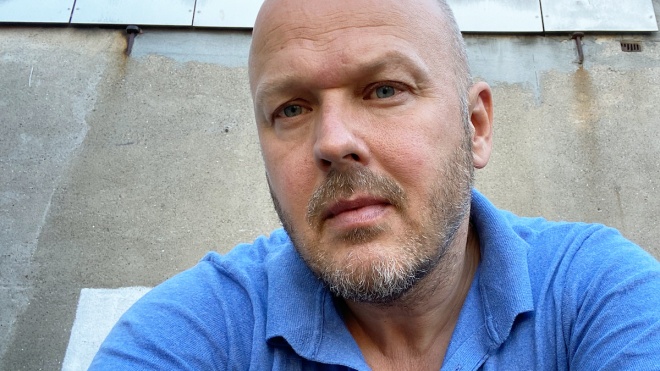
Walter Stokman
Vlad Holovko: I want to start by asking you about your first acquaintance with Ukraine. I know you were here in 2011 at Docudays UA. Could you have imagined then that you would be making a film in Ukraine?
No, I could not. And it was not because of the war and Russia invading. I knew some people from Ukraine and I was at the festival as a visitor. It was then that I read this article about the [KGB] archive opening up. Then I thought, wow, that could be interesting for a film. It was also difficult because it took so much time to make the film because of not only the war, but also Covid-19. There are a lot of important stories to tell now in Ukraine about the war. But I think my film is about something which is maybe at the root of the evil you're fighting against. You're fighting a mentality of the Russian state, controlled mentality.
V: For me, one of the saddest parts of the film wasn't even the horse of the past stories about KGB, but the footage from the geriatric northern home. About elders. And we see there that they still have that fear, they still have that maybe even paranoia about the system. And you also talked a lot with younger Ukrainians, with people of your own age, someone from outside, from other countries, different cultures. Do you think these people seem different from this previous generation, the soviet one? Have you noticed any echoes of totalitarian culture?
I spoke to younger people who saw the film, and they said “Well, there is a lot of distrust anyway in us, maybe through our parents or grandparents”. So I don't know if that's a cultural thing or not. But I was told that there is a lot of caution and distrust. But I do think that the younger generations will never be [the same], they can never be put back in that cage as maybe in the years before they were free. How do you say that? The bird is out of the cage. It will never go back in. You're fighting for something more than just territory. You're also fighting for freedom in your mind and your spirits.
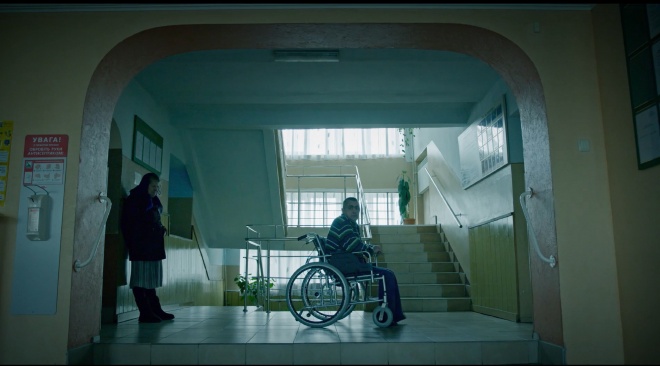
Still from The Kyiv Files
But I was so surprised when I was in Kyiv to see so much energy from young people running the city. I was, of course, mainly in Podil, and there I saw all these young people starting businesses and talking, and it felt really good. And of course, I know there's a horror going on in the east and there are people dying and it's terrible, of course, but I see the freedom.
V: From my perspective, it's still in our mental culture and it is our historical heritage. And during the screening on Docudays UA, I just noticed, I don't know if you were in a hall, but some people laughed a lot during the film. Although everyone knows the horrors of the system, some of them have relatives who struggle even in jail or something like that, but still, we laugh. And how do Westerners and viewers in the Netherlands perceive this movie, do they laugh?
I made this film with some stories that also have some lightness in it. The French lady, you could say, well, what was the big deal? But if you show a story like that, you can relate to it, because if you tell it, if you are showing a terrible story about people murdered or killed, you cannot relate to this. So if people laugh, it means they can relate to them. And even if the French lady is a light story, it still strikes you. You can relate to what happened to her. It could have been you. It could have been you on a holiday 40 years ago, and you find out that you were cheated on.
But if you think about it later on, then you know also that they didn't only do this with her, they did it with a lot of people and with the Lisovi family. Their father was in exile for years and they made their life terrible. They're getting no jobs, and the controllers are playing bad cop, good cop. But I think the light stories are good to tell this.
You can make a film about the KGB, and it could be horrible because of the people killed. But then it's become stories of other people, and now maybe it becomes a story that you can understand. I can imagine this happening to me, for instance. But in the West, the point is still there, that freedom is at stake, that free press is at stake, all these things that were not allowed in the Soviet Union and that are still in Russia. And I think that is the message that also is understood in Europe.
V: Do you think that these foreigners' stories are helping Western viewers relate to Ukrainian heroes as well?
Yeah, because I also think that I am not entitled to tell the story of only Ukrainians because you should do that yourself. Because I'm not Ukrainian. But I did notice that it is difficult to speak with Ukrainians from the post soviet generation about this because they are still afraid. They are still cautious and worried. And even in this elderly house, which I thought was beautiful, where I thought I could make a whole film in this elderly house because the people have so many stories, but they don't talk to each other. They don't tell their personal stories to their neighbors because they still don't trust everyone.
V: And in this elderly house, there was a woman who served in the KGB. And then you somehow managed to talk with a former KGB officer. And it's outstanding. It's quite rare to have on video a former spy or investigator. How did you manage to achieve this?
In the Dutch story, there was a sort of news reportage done in the 1990s, and he was also in there as a younger KGB guy, a former one. And we tracked him down because he looked like a reasonable guy. And the reason why he wanted to talk to me is because he wanted to explain himself in those years. But he was also in the secret service [SBU] after the Soviet Union. He flipped sides, and he said that he was also on the good side. Because when Ukraine became a democracy, they asked him, hey, listen, you did a good job during the KGB years. Will you now do it for us? So he feels he's in the right. He doesn't feel guilty because he's been on both sides.
We contacted him later when the war started because everyone had fled or disappeared. And we tried to find our characters. When we found him, though we couldn’t find him for a while, he said he was in Bucha and he was walking the dog with his daughter when the Russians came in. He said that he started yelling at them: “What the hell are you doing?” Then he fled to Poland, and afterwards he told me: “If I knew that the Russians would start this war, I would have told much more, because I feel betrayed by the Russians. They were my brothers”. He was outraged that the Russians betrayed him, so much so he wanted to tell me.
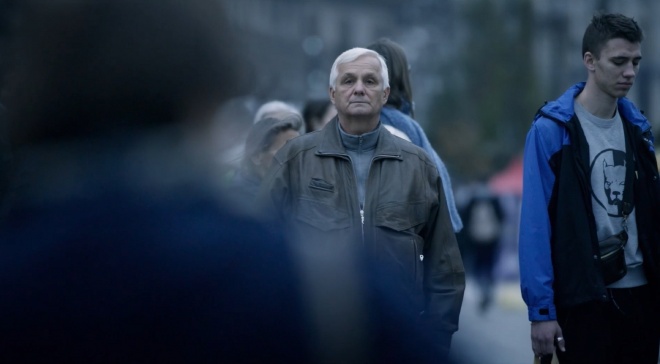
Still from The Kyiv Files
V: Yeah, it would be interesting, maybe a spin-off just about him. How did you select heroes for this film? Because I know that you worked with Eduard Andruschenko, who wrote a book on KGP. How did you meet him and how did he and the other members of your staff assist you?
When I was at the archive, there was a sort of study room, and there were historians working on the files. You can only ask for a relative's name at the archive, and then they will see if there's a file of your grandfather or grandmother. But historians have more freedom to work in the archive, and that's where I met them. I asked them, will you help me to find some files I can make a movie about?
And I told them that there's one important thing — I want to talk with people who are still alive, so I don't want to talk about files from, let’s say, the thirties, Stalin days because no one is alive anymore. And I only wanted to talk about people who were really, who had really experienced themselves what it was to be spied on and controlled by. So that's why it's only stories from the sixties and seventies.
V: Oksen, the son of Vera and Vasyl Lisovi, is now the minister of education in Ukraine. After the start of full-scale invasion, he went to war. He somehow continued the fate of his father because he and his generation struggled with Russia. Again, about the Western perspective. Are Westerners relating to this generational struggle?
Yeah, I think so. There is a scene where his sister is showing on her cell phone footage from her brother. I think everyone understands what he's fighting for because this family has gone through so much misery — with the father sent into exile and all those things they have gone through, the house where they've been spied on with the neighbors. So the Westerner understands why and what Oksen is fighting for. This is such a strong scene where the mother still is very cautious. She doesn't want to call because she thinks they can be tapped. Maybe she still thinks that someone is listening to their phone calls.
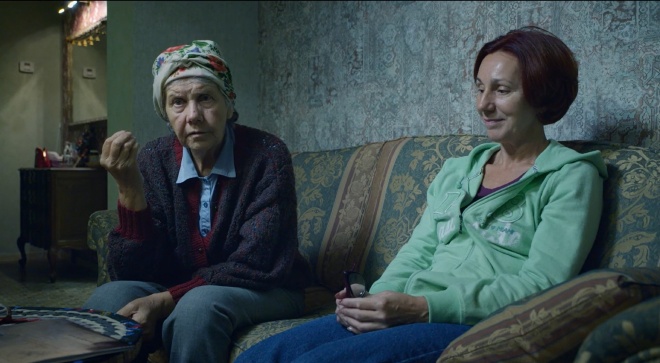
Still from The Kyiv Files
V: And maybe a bit of a personal question about you both as a director and as a human. In the past, you also worked with other hard themes, like criminals, sex workers, and their lives. How are you mentally preparing yourself to work with such stories?
I don't always know upfront how dramatic a story will be. My basic attitude is curiosity. I'm just very curious about people in certain situations. If it's very dramatic, I'm affected by it and I feel for people. But the main thing is that I want to tell their story so other people can also see what is done to them. I'm not so much affected in the sense that I'm distressed about it. But I want to show that story to other people — this is what these people have experienced. My goal is more to affect people who watch my films than it affects me personally. Of course, I'm motivated by curiosity and also by unjust things, but I can deal with things like that.
Anna Yukhymets: In one of your interviews, you said that Ukraine was a part of the Soviet Union and that you can't blame all of the problems on the Russians. We all have been involved in the Soviet state and its recreation in some way. How do you see that tension between coloniality and empires? Did your film help you to figure out this tension?
It convinced me there's no black and white. There's a lot in between. You can't blame people when they are threatened. When they threatened to hurt their family. It is a sort of a snitch society. This word, snitch — hey, if you do this, I will give you this. If you talk about that, I won't do this. So they made everyone responsible in a very mean way, because if you are threatened to lose your job unless you talk about your colleague… I somehow can understand that you do that.
So for me, it's not about pointing out you are wrong and you are right. The only thing that surprised me, where did they all go, all these KGB people? Where are they? They were never been held accountable, never talked about. And that's what really surprised me in a way. Where are they? Suddenly they bloop. All gone. And it was a huge operation, the KGB. It was in all levels of society.
Ukraine was part of the Soviet Union, so they, too, had their part in this system. But I don't like to blame people just because of it, because it's complicated. It was such a deliberate way of making people guilty out of punishment. In Dutch, you have this saying… I don't think I can translate it. But if you divide people, you can rule them. So if you just keep dividing people, you can control them. And that's what they did, basically. And, of course, it's still been done.
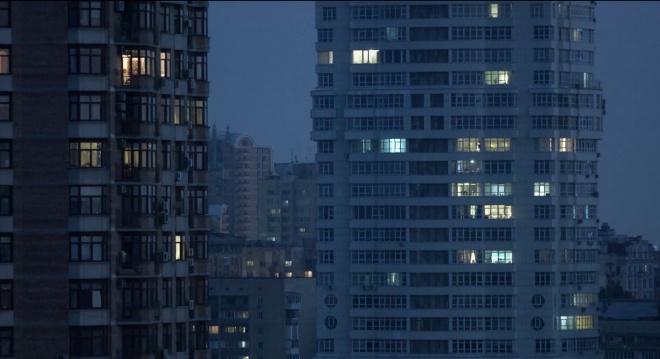
Still from The Kyiv Files
A: Yes, divide and rule.
What do you value the most about documentaries as a method? Why did you choose documentaries in your career in the first place?
For me, documentaries are like watching a film and you are there while you're watching it. Your experience is something that I, as a director, show you. If it was fiction, you probably would say, I don't buy this. I don't believe it. But in the documentary, it's the truth.
It's what you saw and what you filmed. And for me, that is the reason why my documentary is so strong – you can see stories that you could not have imagined.
Interview: Vlad Holovko, film critic and journalist
Anna Yukhymets, guest editor at Travelling Docudays UA, researcher, and cultural manager
The 21st Travelling Docudays UA is supported by the Embassy of Sweden in Ukraine, the Embassy of the Kingdom of the Netherlands in Ukraine and International Media Support.The opinions, conclusions or recommendations do not necessarily reflect the views of the governments or charitable organizations of respective countries. The author(s) of this publication are solely responsible for its content.
Media partners: Vgoru Media Platform, GURT Resource Center.












